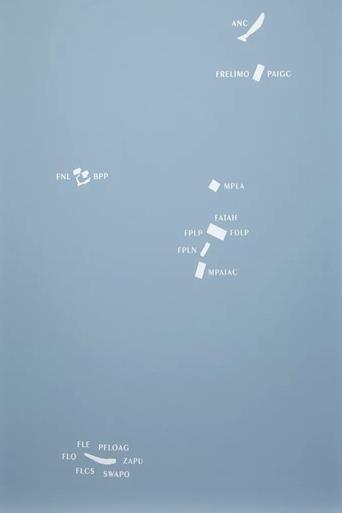Foreign Office
Foreign Office focuses on the period during which Algiers – between 1962 and 1972– became the “mecca of revolutionaries”, hosting representations of many liberation movements from Africa, Asia and the Americas, such as Eldridge Cleaverʼs International Section of the Black Panther Party, Mandelaʼs ANC, or the PAlGC (African Party for the Independence of Guinea and Cape Verde) founded by Amilcar Cabral. Taking as a starting point this forgotten past of post-independence era and internationalism, Foreign Office, invites to reflect on history and its transmission, and on emancipation as essentially linked to poetry. The film shows two young Algerians “re-writing” this history through images, language, and orality, articulating an historiography defined by “cinematic montage” as well as by translation as forms of writing, investigating, and reflecting on history and its resonances. Foreign Office focuses on the period during which Algiers – between 1962 and 1972– became the “mecca of revolutionaries”, hosting representations of many liberation movements from Africa, Asia and the Americas, such as Eldridge Cleaverʼs International Section of the Black Panther Party, Mandelaʼs ANC, or the PAlGC (African Party for the Independence of Guinea and Cape Verde) founded by Amilcar Cabral. Taking as a starting point this forgotten past of post-independence era and internationalism, Foreign Office, invites to reflect on history and its transmission, and on emancipation as essentially linked to poetry. The film shows two young Algerians “re-writing” this history through images, language, and orality, articulating an historiography defined by “cinematic montage” as well as by translation as forms of writing, investigating, and reflecting on history and its resonances. Foreign Office focuses on the period during which Algiers – between 1962 and 1972– became the “mecca of revolutionaries”, hosting representations of many liberation movements from Africa, Asia and the Americas, such as Eldridge Cleaverʼs International Section of the Black Panther Party, Mandelaʼs ANC, or the PAlGC (African Party for the Independence of Guinea and Cape Verde) founded by Amilcar Cabral. Taking as a starting point this forgotten past of post-independence era and internationalism, Foreign Office, invites to reflect on history and its transmission, and on emancipation as essentially linked to poetry. The film shows two young Algerians “re-writing” this history through images, language, and orality, articulating an historiography defined by “cinematic montage” as well as by translation as forms of writing, investigating, and reflecting on history and its resonances. Foreign Office focuses on the period during which Algiers – between 1962 and 1972– became the “mecca of revolutionaries”, hosting representations of many liberation movements from Africa, Asia and the Americas, such as Eldridge Cleaverʼs International Section of the Black Panther Party, Mandelaʼs ANC, or the PAlGC (African Party for the Independence of Guinea and Cape Verde) founded by Amilcar Cabral. Taking as a starting point this forgotten past of post-independence era and internationalism, Foreign Office, invites to reflect on history and its transmission, and on emancipation as essentially linked to poetry. The film shows two young Algerians “re-writing” this history through images, language, and orality, articulating an historiography defined by “cinematic montage” as well as by translation as forms of writing, investigating, and reflecting on history and its resonances.



 AD
AD